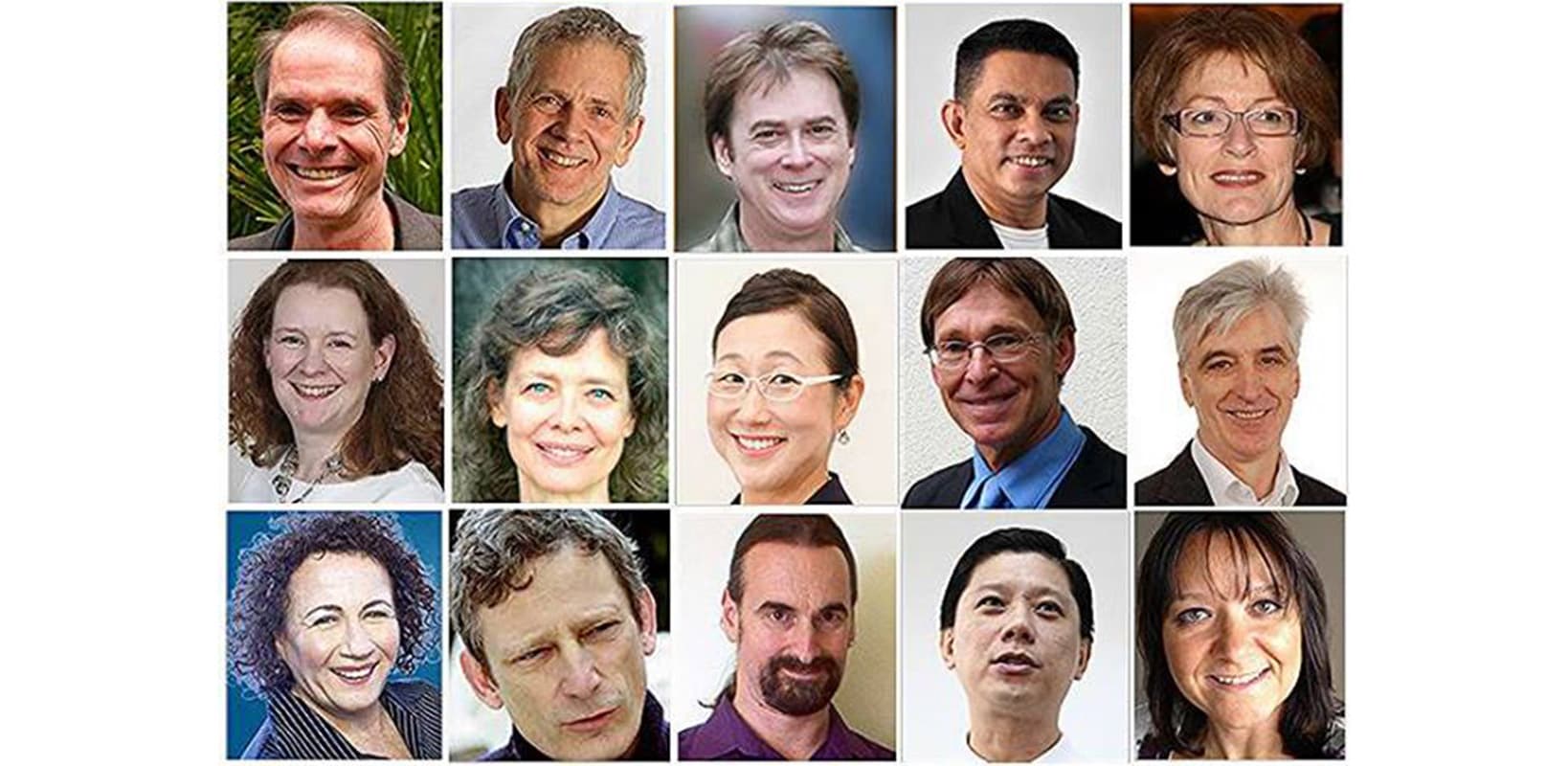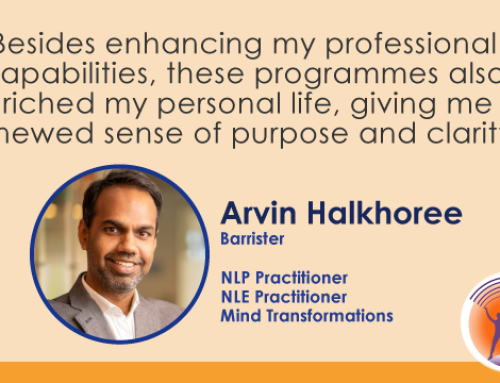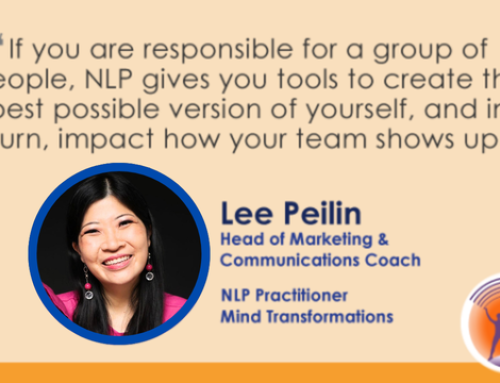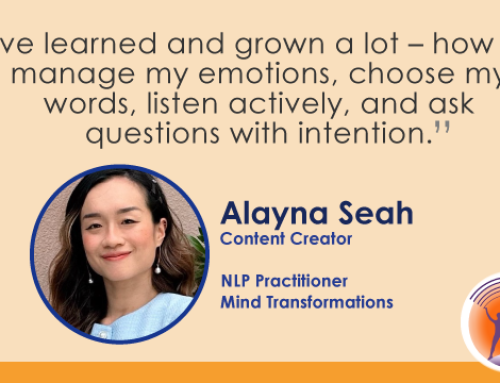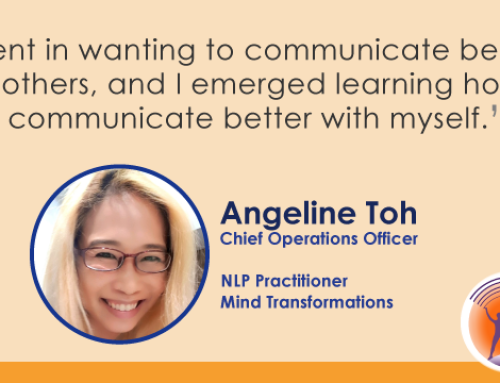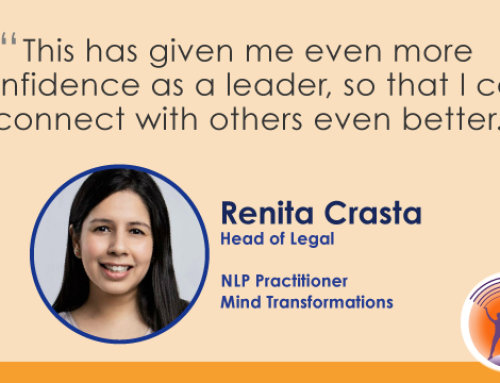The NLP Leadership Summit, launched in 2012, is a biennial meeting of the NLP “Elders” of the world. It brings together a group of people whom I have revered, whose books I’ve read intently and whose trainings have transformed me over the years; so I was truly honoured (and surprised) back in 2015 when Dr. Heidi Heron approached me to be part of this Visionary Group.
The latest meeting was only last month and I did not attend it, or the previous one in 2016 – the timing was challenging for me. I have, however, already decided to attend the 2020 Summit.
The group’s focus – “What is the future we are creating?”
“What kind of culture do we want to cultivate to manifest this future?” The ultimate aim is to create an “NLP Leadership Coalition” that can voice recommendations for the international community of NLP.
While we have different maps of how to train NLP, what should be included in it or how long the training should be, we have one thing in common: the conviction that NLP is a powerful system for changing lives and should be widely recognised as a mainstream human-change discipline.
Our intention is to be the leaders that NLP needs.
This is what the NLP Leadership Summit Manifesto states. We want to guide the field to maturity with professionalism in our practices, by holding ourselves to a high ethical stance, maintaining high standards of training & certification, and collaborating as much as possible. These are all part of Mind Transformations’ DNA.
To vitalize NLP, it is critical to tune into emerging trends in human evolution.
Every paradigm that we create affects the society and environment we live in. So one could say that our external world is a mirror reflection of our inner maturity – as a species. Looking at the planetary ecosystems, we know that one of our mandates as planetary citizens and as human-change catalysts (NLP) is to co-create a sustainable ecological future.
We have to work, communicate, eat, travel, use natural resources, learn & update our worldviews in ways that are “supporting life” as opposed to destroying it.
The level of thinking that creates a problem cannot be the one that solves it (to paraphrase Einstein).
It is useful to start thinking about how we organize our meetings, set up our rules of engagement and determine our objectives. Using the principle of Chaos Theory, setting up the “Right Attractors” in a budding system would ultimately shape the evolution of the system as well as the systems in which it is embedded. How we support each other in finding meaningful, highly impactful projects could be the “Attractors” that would rapidly vitalise our NLP communities.
This would also imply getting NLP Communities to focus on meaningful projects that serve others (and not only the self).
Projects that address pressing global issues (social, economic, biological and environmental). This could rapidly organise like-minded groups into high-impact projects. Members within the community could play different roles – according to their strengths – to support these projects. And a handful of projects could be structured to support each other, so that the advancement of one project enhances the rest.
The power of meaningful attractors is – they are the source of tipping-points.
We see it in the Mind Transformations community all the time: groups of people tapping into their passion in order to do good in this world, and in doing so, they do well in their business.
“Do Good & Do Well” is our focal point in everything we do.
We collaborate with “life supportive” individuals and groups, taking the role of fund-raisers, connecting their cause to the right people, of consultants & coaches to their projects and of message promoters on our social media platforms.
We live our company ideologies.
“Be the change you want to see, don’t just talk about it”, “How we do anything is how we do everything”, “Whomever we add value to will come back to us”, and “In the power to change oneself, is the same power to change the world” – these serve as principles, decision-making criteria, ways of doing business (all connected to NLP as well).
In 2013 we developed the human-change methodology of Multiple-Intelligence (first coined by Howard Gardner).
At Mind Transformations, we apply it in the arena of Communication, Self-Mastery and Coaching. The NLP presupposition “Mind & Body Are One” is now given a more explicit definition and application as Physical Intelligence (PQ), Mental Intelligence (IQ), Emotional Intelligence (EQ) and Spiritual Intelligence (SQ).
Mind Transformations is aligned to the intentions of the NLP Leadership Summit, i.e. “to be the leaders that NLP needs.”
Sometimes, when we think about these intentions, we shudder because none of us are perfect. We are bound to make mistakes, struggle with our insecurities or make tough competitive decisions that challenge our values. But this is the very reason for which we entered the world of NLP: to bring forth a better version of ourselves, by mastering the light within us and then spread this light to the world.
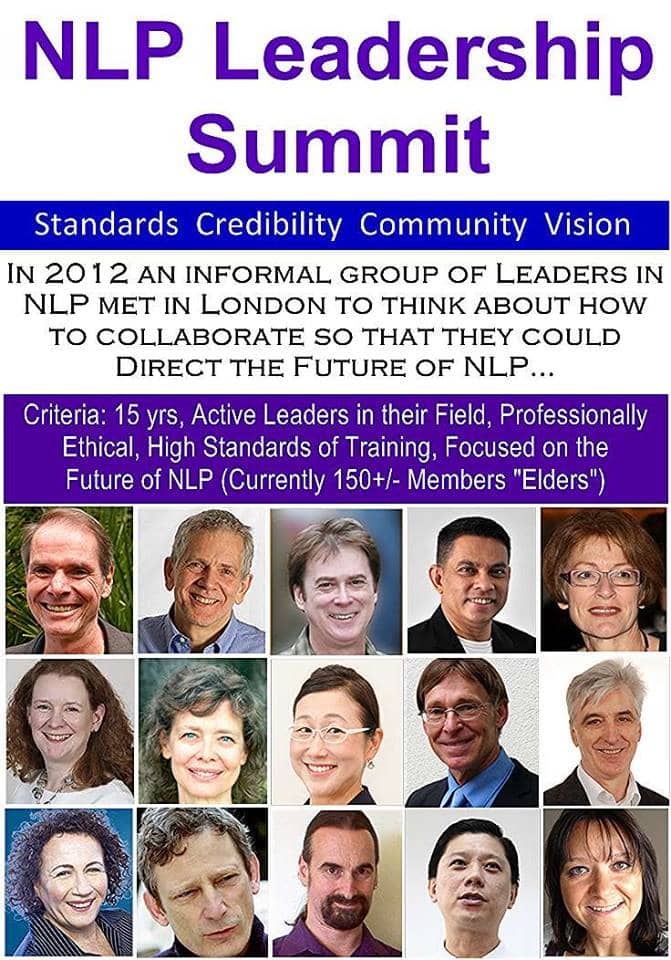
From left to right, top to bottom: Robert Dilts (U.S.), Ian McDermott (U.K.), Charles Faulkner (U.S.), Marzuki Mohammed (Malaysia), Anneke Meijer (Netherlands), Dianne Lowther (U.K.), Connirae Andreas (U.S.), Yukari Horiguchi (Japan), Michael Hall (U.S.), Karl Nielsen (Germany), Shelle C. Rose (Canada), Joseph O’Connor (U.K.), Richard Bolstad (New Zealand), Barney Wee (Singapore), Heidi Heron (Australia) and 140 more, members of the NLP Leadership Summit, that meets every 2 years. Many of these NLP Leaders are warmly referred to as “The Elders” of the International NLP Community.
[inf_infusionsoft_inline optin_id=”optin_2″]

